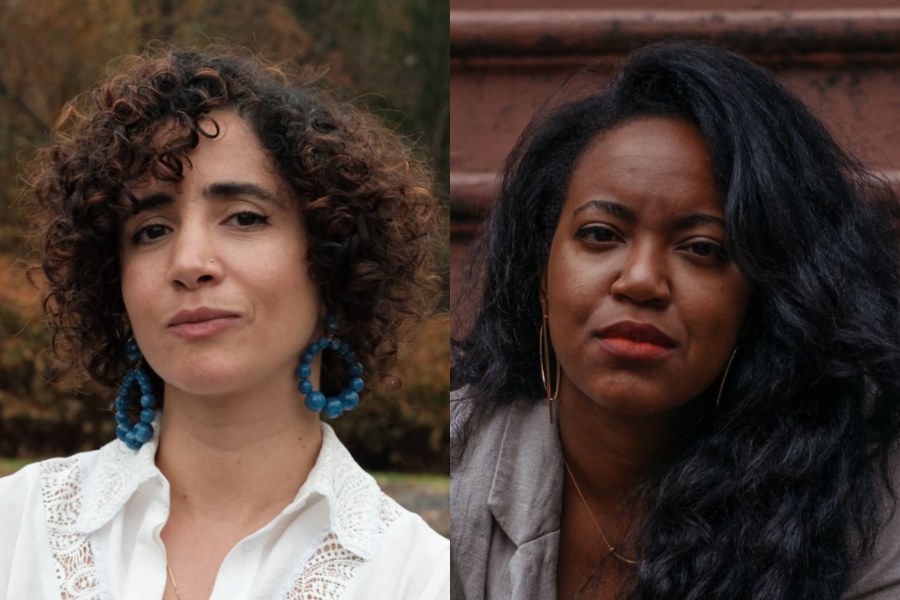SANTA MONICA, CALIF.: The Herb Alpert Foundation has announced the winners of the 29th annual Herb Alpert Award in the Arts (HAAIA). Administered by California Institute of the Arts, each award comes with an unrestricted prize of $75,000 and a residency at CalArts. It is given annually to risk-taking mid-career artists working in the fields of dance, film/video, music, theatre, and the visual arts. The 2023 Herb Alpert Award in the Arts winners include Ayodele Casel, and duo Makini (jumatatu m. poe) and Jermone Donte Beacham for dance, Christopher Harris and Madeleine Hunt-Ehrlich for film, Erin Gee and Linda May Han Oh for music, Tania El Khoury and Whitney White for theatre, and American Artist and Park McArthur for visual arts. A virtual HAAIA awards celebration was held this afternoon.
“Yes, ‘the world offers itself to [our] imagination,’” said director of HAAIA Irene Borger in a statement, “yet it seems more critical now to offer a fierce and forward looking imagination to the world—which is precisely what all of the 2023 Herb Alpert Award Artists do.”
Founded and conceived in 1994 by musician, philanthropist, and artist Herb Alpert and Lani Hall, a Grammy-winning vocalist and his wife, the HAAIA has been awarded to 164 artists to date. The award aims to honor and support artists respected for their creativity, ingenuity, and bodies of work, at a moment in their lives when they are poised to propel their art in new and unpredictable directions. The HAAIA seeks to recognize experimenters who are making art that matters within and beyond their field.
“Herb and Lani Alpert continue their decades-long commitment to support those art makers and performing artists who, in grappling with our challenging world, are creating innovative, vital, and necessary work,” said Rona Sebastian, president of the Herb Alpert Foundation, in a statement.
Supported by a member of the CalArts faculty, each Herb Alpert Award winner is asked to design and take part in a week-long residency at CalArts, in Valencia, Calif., during the year of their award. Residencies may include workshops, productions or concerts, seminars, lectures as well as individual critiques of student work.
Every year, 50 artists and arts professionals each nominate two artists, and the 100 nominees are then invited to apply and submit work samples. Five three-person panels then select the winners. This year’s theatre panelists included Emilya Cachapero, director of grantmaking programs at Theatre Communications Group; Avery Willis Hoffman, artistic director of Brown Arts Institute; and Gideon Lester, artistic director and chief executive of the Fisher Center at Bard College.
Nominees who do not receive the Alpert Award may be eligible for month-long stays at a number of distinguished artists communities that have included Hedgebrook, MacDowell, Ragdale, Sacatar, the Ucross Foundation Residency Program, and Yaddo. Artists chosen for Herb Alpert Residency Prizes receive a stipend from the Herb Alpert Award program.
The theatre panel selected Tania El Khoury “for her serious and playful, and complex work, her breadth of imagination, and powerful sense of ethical responsibility,” according to their statement. “Studying the political potential of live art, treating audiences as fellow investigators and researchers, inventing new forms and new ways of engagement with each project, she is opening new paths of meaning and creation.”
Via the breadth of her multifaceted imagination and the powerful sense of ethical responsibility imbedded in her work, artist Tania El Khoury sets out to create sensorially rich interactive installations, performances (site-specific, interactive, one-on-one, “lectures”) and physical and aural encounters all in the service of engagement. Serious in intent, her works raises issues of national and transnational constructions of identity, human rights violations, forced migration, gender violence and trauma, the effects of decades of wars and occupations, the relation of archives and history, but is also playful, theatrical, elegant, and complex. Co-founder of OSUN Center for Human Rights & the Arts at Bard College she is positioned to support many other artists’ work.
The panel selected Whitney White “for her artistic range as a writer, musician, performer, and director who moves fluidly between difficult and knotty contemporary plays and well-known classics, never allowing herself to be pigeonholed as one kind of artist. A brilliant and generous collaborator, she leads audiences on wonderful investigations of form, politics, and of the fundamental nature of theatre.”
White is a writer, director, musician, and actor who creates dynamic live performances for theatre born of collaborative processes. Whether she is directing Hedda Gabler, Othello, a musical adaptation of Chekov’s Three Sisters, James Baldwin’s The Amen Corner, or Aleshea Harris’ What to Send Up When It Goes Down, she constructs visceral, poetic, unapologetic, fabulous, and singular worlds.
The Herb Alpert Foundation is an independent nonprofit private foundation based in Santa Monica, Calif. Established in 1988 by Herb Alpert, the foundation primarily supports the arts, with a focus on arts education, and jazz, and also provides support to professionals.


